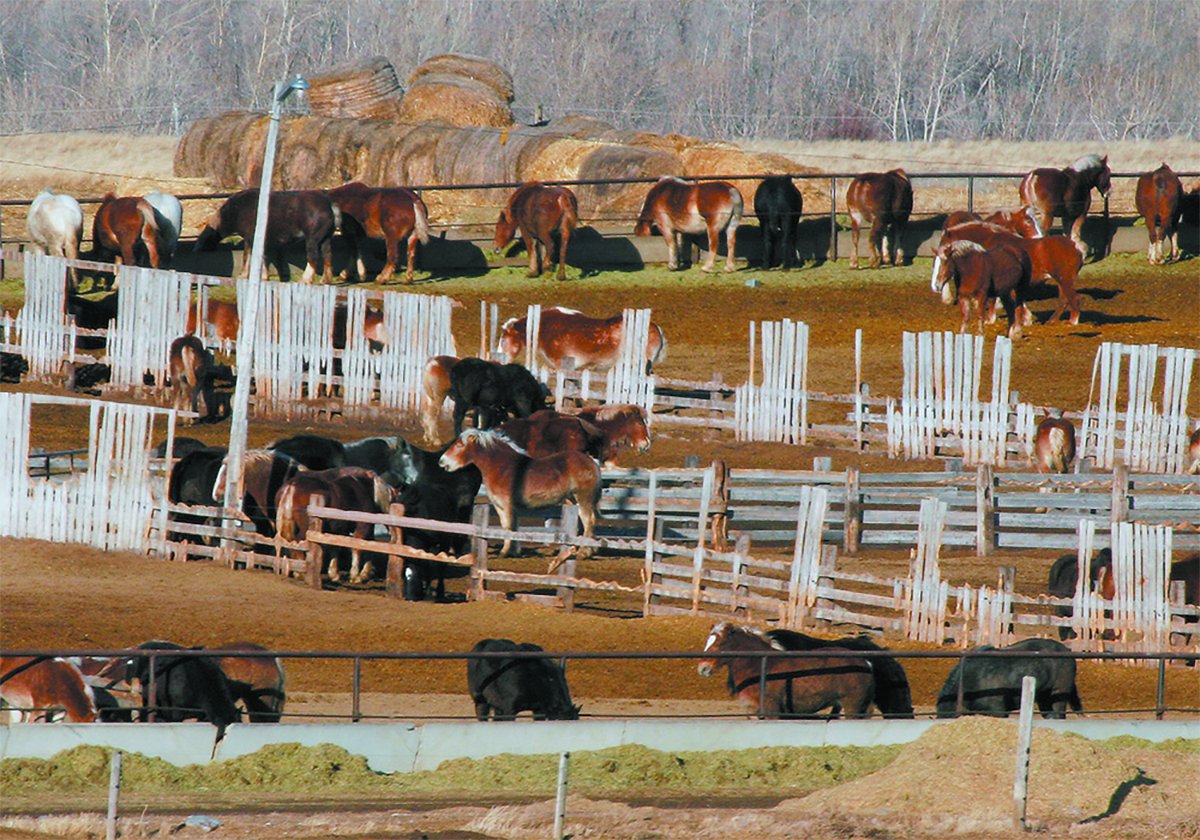RED DEER – Tony Saretsky stood at the microphone and attempted to draw an anxious crowd of beef producers together with a conciliatory tone and a gentle voice.
This was the inaugural meeting of the Alberta Beef Industry Council, representing feedlot owners, auctioneers, cattle buyers and ranchers.
It is not BSE they fear, but its political and economic ramifications when a beef exporting powerhouse like Canada is suddenly banned from international markets.
Visibly absent from the three-day meeting was the Alberta Beef Producers, a group that controls more than $10 million in check-off revenue collected from anyone selling cattle in the province. The organization has been criticized for not doing enough and those at this meeting say it is time for a single voice to speak on behalf of all allies in the beef industry.
Read Also

Canada’s slaughter horse industry lacks transparency
The lack of clear reporting and public access to data keeps the industry largely hidden, leaving questions about humane treatment and traceability unanswered.
“I don’t believe any of us are involved to break down the industry. I believe we are involved to build it up and we want to take it into the future,” Saretsky told the gathering in Red Deer on Feb. 21.
Saretsky feeds cattle in central Alberta and until May 20, 2003, he exported thousands across the border every year. He agreed to be interim chair for the Alberta Beef Industry Council, which is attempting to restore hope to a ravaged rural landscape.
“It is not a time to be passive. It is a time to be thoughtful,” he said.
The council formed two years ago out of frustration with mainstream livestock leadership. Those frustrations led to a seven point proposal to help producers save their livelihoods.
The proposal makes bold statements about financial aid and the controversy of killing older cattle to prevent a tidal wave of beef appearing on the market this spring.
No cost estimates are available, but agricultural consultant Jerry Bouma of Edmonton suggested the plan would require $1-$2 billion.
Bill Newton, president of the Western Stock Growers Association, said the cost must be considered for the salvation of a major economic force in Canada.
“At this point in time, if this industry collapses, what will that cost the taxpayer? Long term we need to ensure the money spent by the taxpayer is spent in the wisest fashion,” he said.
- The most hotly debated proposal in the seven-point package was establishing a floor price for market-ready cattle. Working with government and industry, a minimum price needs to be established on slaughter cattle for the next 18 months, the proposal said.
- The plan suggests getting money into producers’ hands through a forgivable loan guarantee set at a specified amount per head per day until the borders reopen.
- A cull program is needed to reduce the record number of cattle. The slaughter plan would likely apply to all cattle born before the 1997 feed ban went into place. That would further reduce the risk of BSE and create a youthful herd. Canfax estimates 65 percent of Canada’s five million cows were born since 1997.
Government funds would be required to compensate producers agreeing to cull. Choice cuts could likely be removed and the rest of the carcass would likely be rendered.
- The federal government needs to be encouraged to remove import restrictions on American cattle imports due to bluetongue and anaplasmosis requirements.
- Lift the import ban on Japanese beef and live cattle.
- All efforts must continue to reopen borders and resume trade with the United States and other countries.
- A better communication plan is required.
The council proposed other long-term plans that include making Alberta a premium supplier of high quality, safe beef to the world.
The proposal is now circulating for public feedback.

















